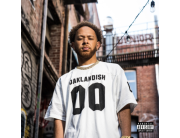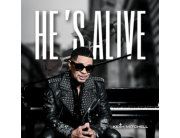This year, The Millennial Social Work Conference gave attendees more than just insight into the world of social work—it introduced us to the raw, unfiltered emotional journey of those who perform, entertain, and put their hearts on display for the world. The Production Wellness House event stood out as a transformative moment in the conference, a place where vulnerability, healing, and artistry collided in a way that left us all breathless.
At the center of it all was Candace Washington, a true hero, not just in her industry but in her own life. Candace shared with us the mental battles she has fought and overcome. Surviving a mental attack three times is no small feat—it’s a testament to the strength it takes to keep going, especially when the mind, a space you can’t easily escape, is where the war takes place. Candace has faced these challenges head-on, not just for her audience, but for herself. Her journey is proof that healing isn’t just a destination, it’s a continuous process. Her courage to keep pushing through for her well-being serves as a powerful reminder that taking care of your mental health is as important as any stage performance.
Ronald “Wink” Woodall, a guiding force behind the event, deserves a standing ovation for his commitment to encouraging his talent and peers to seek help when needed. In an industry where the show must go on, “Wink” has made it his mission to remind those around him that mental health matters and it’s okay to not be okay. The entertainment world may demand perfection, but Wink reminds us that real strength comes from acknowledging our vulnerabilities and taking the steps necessary to heal and grow. His encouragement creates space for others to do the same, making him not only a leader in his craft but a true champion of mental well-being.
Perhaps one of the most poignant moments of the event came from actress and producer Terri J. Vaughn, whose raw vulnerability gave all of us a window into the continuous weight entertainers carry. In her real-time sharing, Terri allowed us to witness how the pressures of her profession don’t disappear when the director yells “cut.” The emotional load of carrying a character, the toll it can take on mental health, and the realities of balancing personal well-being with public performance became crystal clear. Terri’s openness about these ongoing struggles was a powerful reminder that even those who seem to have it all together are still fighting battles that we can’t see. Her willingness to show up, be real, and advocate for mental health in the entertainment industry left an indelible mark on all of us.
The event was more than just a conversation—it was a wake-up call. It urged us all to prioritize mental health, not as an afterthought, but as a fundamental part of our well-being. As social workers, it challenges you to think outside of the typical spaces you inhabit, to take your skills and apply them to industries that often overlook mental wellness, especially in the arts. Mental health shouldn’t be confined to a therapist’s office or a clinical setting. It’s a conversation that needs to happen in the green rooms, on the stages, and in the rehearsal spaces of every industry, including entertainment.
The Production Wellness House provided a safe and supportive space for performers to reflect on their own mental health. And for those who may still be unsure of where to start on their own healing journey, this event reinforced the message that help is always just a phone call away. The Production Wellness House isn’t just a one-time event—it’s a movement, one that continues to provide resources and support for those in need. And let’s not forget, the Millennial Social Work Conference is an annual gathering that will continue to highlight and address mental health in every area of life, from social work to the arts.
So, to every performer, every artist, every creator: we see you. We acknowledge the emotional labor you carry, the highs and lows of your journey, and the strength it takes to show up, day after day. To every social worker, the challenge is on—you are equipped to take your talents to places they’ve never been before, to help heal in spaces that so desperately need it. Together, we can break down the stigma, fight for our mental wellness, and support one another along the way. Prioritize your mental health, embrace your vulnerability, and never forget: help is always a call away.






Add Comment
You must be logged in to post a comment.